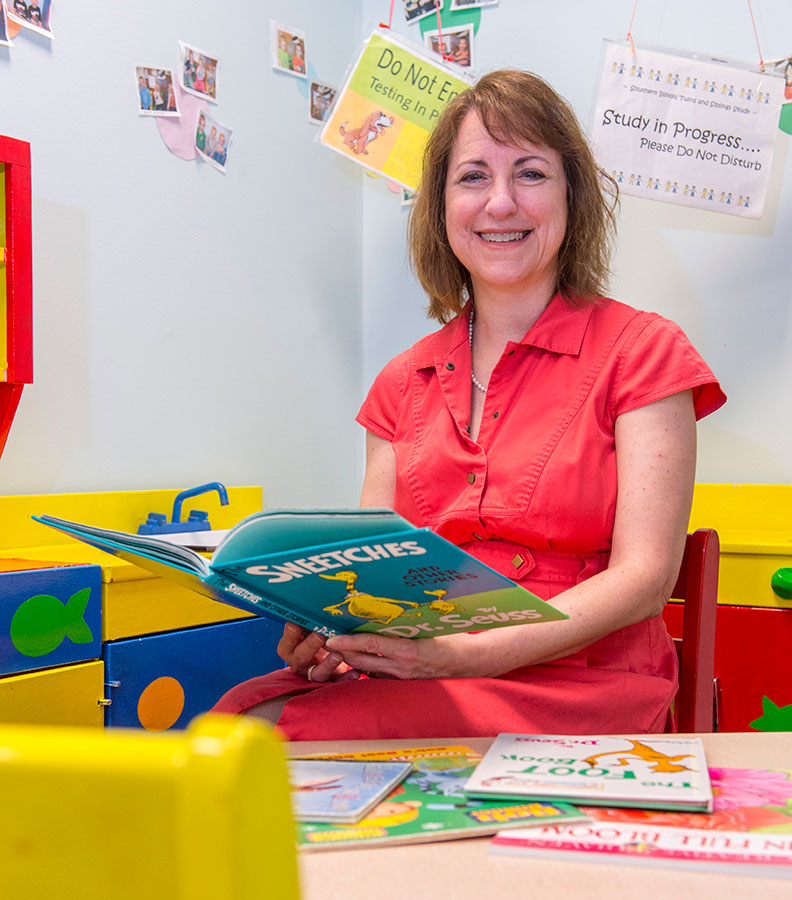Main Content
On-Campus Clinical Experience
Out of the Classroom and Into the World.
Majors in Behavior Analysis and Therapy have numerous options to take what they learned in the classroom into the professional world.
Every student enrolls in a practicum course, as well as an internship course. Placements for on-campus students include SIU's Center for Autism Spectrum Disorders, the Evaluation and Developmental Center, Project 12-Ways, and a variety of other approved off-campus clinical sites. Students in the online program are required to seek out their own placement sites. Regardless of the placement, each student will work side-by-side with current behavior analysts to learn the tools of the trade.
Students will also practice the techniques of the classroom in carefully supervised clinical settings while working one-on-one with persons with autism, intellectual disabilities, brain injuries or mental health disorders to see how the power of behavior analysis can make real lives better. No matter where the practicum takes place, one thing is certain – each successful graduate will be confident in their skills as a behavior analyst.

Get Involved in Science
Although not a formal and required part of the degree program outside of the masters thesis, students are encouraged to participate as research assistants in any of the various research projects that faculty and doctoral students conduct. The range of topics is vast and the experiences are priceless.
Imagine helping discover how to get children with autism to speak, analyzing the circumstances under which people make impulsive decisions, or how different animals behave in laboratory settings. Don’t just read about science – be part of it.
BAT Clinical Experience:
The Behavior Analysis and Therapy program’s faculty have developed a wide range of opportunities for students to gain clinical experience in the field based on their major areas of interest within behavior analysis. Areas of focus for students include how our behavior affects our health, the language and cognitive development of young children with autism, eating and potty training behaviors in children, occupational behavior management and social skill development of teens and young adults. Clinics on campus offer students an opportunity to record experience hours on-site while being immersed in a hands-on learning environment.



